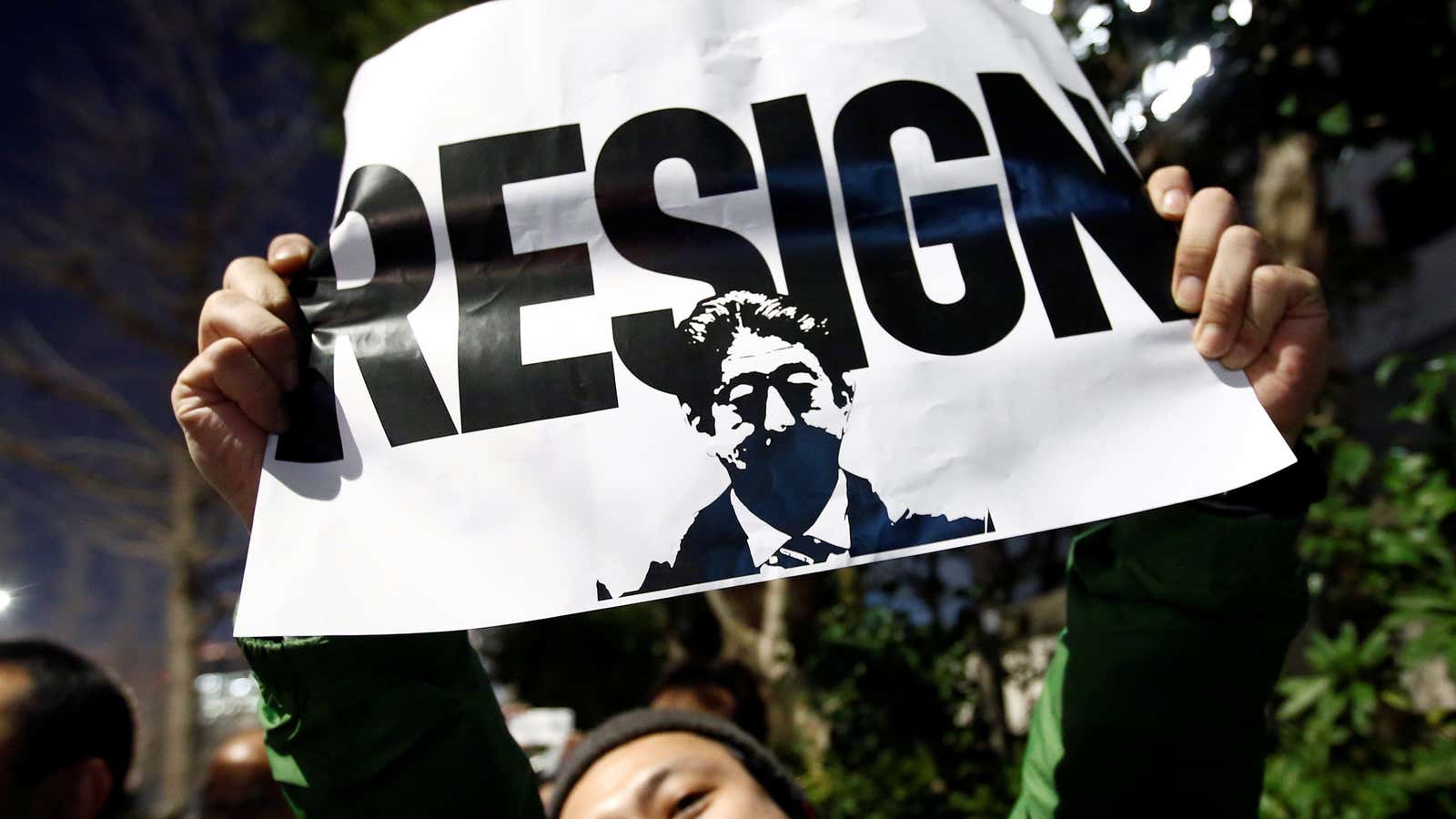Prime minister Shinzo Abe’s travails could once again give Japan its word of the year.
The Japanese leader is currently embroiled in a year-long cronyism scandal that could potentially derail his ambitions to become the country’s longest-serving prime minister. The scandal centers around his wife Akie’s involvement with Moritomo Gakuen, an operator of ultra-conservative schools that was somehow able to purchase government land in Osaka prefecture at a fraction of its value. This week, the finance ministry admitted that it had altered related documents it submitted to parliament as part of the probe. The changes included removing the names of Abe, his wife, and finance minister Taro Aso. In addition, Abe and Aso’s names were nixed from an explanatory section about the school’s ties with the powerful far-right lobbying group Nippon Kaigi.
But whether the officials “altered,” “deleted,” or “falsified” the documents in question depends on where one stands on the political spectrum. Michael Thomas Cucek, an adjunct professor at Tokyo’s Waseda University, called the Moritomo Gakuen scandal a “battle of terminology,” something that opposition lawmaker Renho also noted:
The Asahi and Mainichi newspapers are two of the biggest liberal-leaning dailies in Japan—the former exposed the story of the land deal last year and this month broke the news that sections of the documents relating to the land sale had been tampered with. Both the papers used the term “falsified” (kaizan), which has undertones of a deliberate and malicious alteration, to describe what happened to the documents in question.
The right-leaning Sankei newspaper, like the Nikkei—a more middle-of-the-road business newspaper—used the softer term “rewritten” (kakikae) to describe what had happened. The Sankei also quoted (link in Japanese) a politician from the ruling party who said that there was “no falsification involved, but a correction.”
Last year, the Moritomo Gakuen scandal revived an obscure and hitherto neutral Japanese term, sontaku, which refers to people who perform pre-emptive acts to ingratiate themselves to their superiors. The term was popularized last year with relation to the scandal, as people sought to criticize Abe’s concentration of power and explain how it was that a scandal of that magnitude—and it wasn’t the only school scandal that engulfed Abe last year—could unfold. It was eventually chosen by a publisher in its annual award for the word of the year.
But no matter how politicians or media couch it, the scandal isn’t likely to go quietly. In comments made to Japan’s Diet today (March 14), Abe denied that the documents implicated him or his wife in the land deal. Abe and finance minister Taro Aso also told parliament that neither of them had instructed bureaucrats to alter the documents. None of those explanations are likely to satisfy the opposition, or the thousands of Japanese citizens who have been protesting in recent days, both calling for Abe and Aso to resign, with another protest scheduled tonight (link in Japanese) outside Abe’s residence. 2018 is likely to be remembered in Japan as the year of kaizan.
